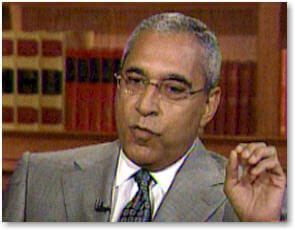Old Man Jingles
Rat out of a cage
Shelby Steele has been discussing this for 30 years or more ...
White Guilt - How Blacks and Whites Together Destroyed the Promise of the Civil Rights Era
In 1955 the murderers of Emmett Till, a black Mississippi youth, were acquitted of their crime, undoubtedly because they were white. Forty years later, O. J. Simpson, whom many thought would be charged with murder by virtue of the DNA evidence against him, went free after his attorney portrayed him as a victim of racism. Clearly, a sea change had taken place in American culture, but how had it happened? In this important new work, distinguished race relations scholar Shelby Steele argues that the age of white supremacy has given way to an age of white guilt -- and neither has been good for African Americans.
As the civil rights victories of the 1960s dealt a blow to racial discrimination, American institutions started acknowledging their injustices, and white Americans -- who held the power in those institutions -- began to lose their moral authority. Since then, our governments and universities, eager to reclaim legitimacy and avoid charges of racism, have made a show of taking responsibility for the problems of black Americans. In doing so, Steele asserts, they have only further exploited blacks, viewing them always as victims, never as equals. This phenomenon, which he calls white guilt, is a way for whites to keep up appearances, to feel righteous, and to acquire an easy moral authority -- all without addressing the real underlying problems of African Americans. Steele argues that calls for diversity and programs of affirmative action serve only to stigmatize minorities, portraying them not as capable individuals but as people defined by their membership in a group for which exceptions must be made.
Through his articulate analysis and engrossing recollections of the last half-century of American race relations, Steele calls for a new culture of personal responsibility, a commitment to principles that can fill the moral void created by white guilt. White leaders must stop using minorities as a means to establish their moral authority -- and black leaders must stop indulging them. As White Guilt eloquently concludes, the alternative is a dangerous ethical relativism that extends beyond race relations into all parts of American life.
White guilt is a culturally and historically contingent emotion rooted in White
people’s recognition of unearned privileges and collective and/or individual roles in the
perpetuation of racism.

White Guilt - How Blacks and Whites Together Destroyed the Promise of the Civil Rights Era
In 1955 the murderers of Emmett Till, a black Mississippi youth, were acquitted of their crime, undoubtedly because they were white. Forty years later, O. J. Simpson, whom many thought would be charged with murder by virtue of the DNA evidence against him, went free after his attorney portrayed him as a victim of racism. Clearly, a sea change had taken place in American culture, but how had it happened? In this important new work, distinguished race relations scholar Shelby Steele argues that the age of white supremacy has given way to an age of white guilt -- and neither has been good for African Americans.
As the civil rights victories of the 1960s dealt a blow to racial discrimination, American institutions started acknowledging their injustices, and white Americans -- who held the power in those institutions -- began to lose their moral authority. Since then, our governments and universities, eager to reclaim legitimacy and avoid charges of racism, have made a show of taking responsibility for the problems of black Americans. In doing so, Steele asserts, they have only further exploited blacks, viewing them always as victims, never as equals. This phenomenon, which he calls white guilt, is a way for whites to keep up appearances, to feel righteous, and to acquire an easy moral authority -- all without addressing the real underlying problems of African Americans. Steele argues that calls for diversity and programs of affirmative action serve only to stigmatize minorities, portraying them not as capable individuals but as people defined by their membership in a group for which exceptions must be made.
Through his articulate analysis and engrossing recollections of the last half-century of American race relations, Steele calls for a new culture of personal responsibility, a commitment to principles that can fill the moral void created by white guilt. White leaders must stop using minorities as a means to establish their moral authority -- and black leaders must stop indulging them. As White Guilt eloquently concludes, the alternative is a dangerous ethical relativism that extends beyond race relations into all parts of American life.
White guilt is a culturally and historically contingent emotion rooted in White
people’s recognition of unearned privileges and collective and/or individual roles in the
perpetuation of racism.


 who if he wasn’t rich would be doing time for sexual assault, and on the sex offender watch list
who if he wasn’t rich would be doing time for sexual assault, and on the sex offender watch list